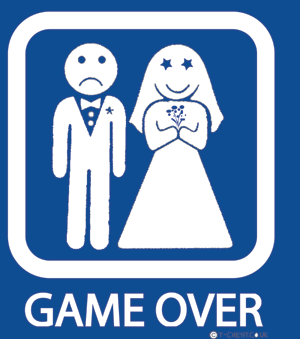We've all had those days, where it just seems like everything has gone wrong and the Universe is conspiring against our happiness. Or when a friend, family member or significant other has suddenly decided to be the dumbest person on the planet. In these moments, sometimes we just feel the need to let off some steam - talk to someone about what's happening and make sure we're not crazy, that these things are really happening to us! Often times we even say "I just need to vent," implying that we'll just say our piece, the negativity will escape our bodies, and we'll no longer be the pressure cooker that we were previously.
In the social sciences, depending on the manner an individual goes about the venting process, there are several names for it - none of them good. The first of these is the principle of rumination. The term rumination is derived from a cow's digestive process. They have what's called a ruminating stomach - meaning once they swallow something, they spit it back up into their mouth, chew it more, and then swallow it again. But that's not all! They keep doing it, until it's sufficiently broken down and passed through their four stomachs. Seriously.....gross. But it carries a key principle with it regarding venting. When people vent it's ok if they let off the steam, and find a solution to the problem, but continuing to regurgitate the matter only to chew on it and then swallow again... well, you can see how detrimental that can be. What we find is that people who ruminate on something that is displeasing in their life or their relationship actually have higher levels of depression, and are less likely to find solutions to their problems.
Sometimes this is even taken to the level of bringing external individuals into the problem. This begins as co-rumination in simply discussing the event with the same person over and over again. Eventually, if it takes place long enough it can be called triangulation - bringing a third person into the matters surrounding the relationship. This becomes especially harmful in romantic relationships. Studies have shown that co-rumination and triangulation can lead to something called a coalition. This is when that third person becomes an ally and "takes sides" in an argument.
While it may seem pretty intuitive as to why this is so harmful to relationships, the science shows us that when one relationship becomes stronger, another one must naturally become weaker. In the case of marital coalitions (one spouse gets another family member, child, or friend to be "on their side") the partnership between the co-ruminators becomes stronger, and the marital relationship becomes weakened.
Now, some of this may sound extreme. However, the end result of venting doesn't always have to be marital dissolution and divorce. It can simply be a weakening of your relationship with your spouse or significant other. In maintaining strong relationships, it's important to resolve problems between one another, or with appropriate individuals such as mental health professionals or ecclesiastical leaders.


